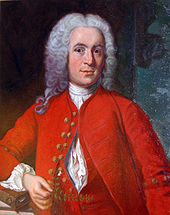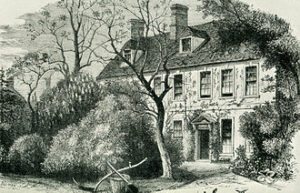Americanism Redux
December 28, 250 years ago today, in 1772
Flowing out. Spreading. Ceaseless and unrelenting. Waters broken through the mill dam and covering the cold, dry ground. How to stop it? How to hold it back?
That’s the reality of today 250 years ago.
Towns in Massachusetts are beginning to hold meetings to consider the Statement of Rights produced by the Boston town council and Committee of Correspondence a few weeks ago in November. The momentum for the strong pro-colonial rights pamphlet, authored by Samuel Adams, has begun to spread, just as Massachusetts Governor Thomas Hutchison had predicted, had feared, had dreaded. The dam has burst and the water flows.
Town to town.
Among the first set of affected towns by today 250 years ago are Marblehead, Ipswich, and Pembroke. Townsfolk meet, select a small committee of four or five or six men, and they proceed to write “resolves” that express support of the Statement of Rights. The three towns’ batch of Resolves share themes—including an endorsement of colonial rights, a denouncement of British imperial actions, a pronouncement to pursue all measures to protect colonial rights and, in some cases, an explosive warning that a war might have to be waged to translate the assertion of rights into separate nationhood. It’s spreading. What will it cover? What will turn it back?
(an annual re-enactment of the Pembroke Resolves)
Also
In Europe, in Scotland, the President of the Royal College of Physicians of Edinburgh fixes his signature to the bottom of a sheet of paper. He informs Carl Linnaeus, widely famous in scientific circles for his botanical discoveries and botanical classification system, is the recipient of a special diploma from the Royal College. It is in honor of 65-year old Linnaeus’s ground-breaking work in categorizing plants and animals. “Tell him,” French philosopher Jean-Jacques Rosseau had said, “I know no greater man on earth.” Johann von Goethe listed his three greatest influences: Shakespeare, Spinoza, and Linnaeus. The honorary degree is but a nod of praise for one of the greatest living scientists in the world.
(Carl Linnaeus on the day of his wedding)
Also in Europe, in Olney, England, a former ship captain is nearing the end of a hymn he has written for his local church. 47-year old John Newton had captained a slave-trading vessel for years. Slowly, over time, his conscience, his Christian faith, and his experience in hearing the chants and singing among the enslaved men, women, and children below decks have changed his life. Today, 250 years ago, the rhythm and musical pacing of the mournful sounds beneath his feet have formed the backdrop to the lyrics that will be entitled “Amazing Grace.” Newton sings of the grace that forgives his deepest sin, slave-trading.
(the vicarage where Newton wrote his song)
For You Now
The spreading floodwaters in Massachusetts have entered the world as it is. The Resolves of the town meetings will encounter aspects of life and living that hold fast but disappear beneath it, channel or deflect to a different direction, or are carried off and deposited elsewhere. The Resolves will, sooner or later, reach the edges of black enslavement and scientific rationalism. When the encounter occurs, the water will do what it must with different levels and heights. It will pool in the lowest and will surround below the highest.
The momentous events of life and living are the same for you today. Be it a Supreme Court ruling, a technological marvel, an economic recession, a war, or something else, the injection of a new force finds its way to the pillars and pathways in daily existence. They may stand, they may waver, they may fall, however it goes they will be affected by the flood tide of change. The truth is that the waters will flow onto the things within their courses.
The water will surprise in its currents and depths.
Suggestion
Know your habit in the face of a change that comes quickly upon you and the community around you.










